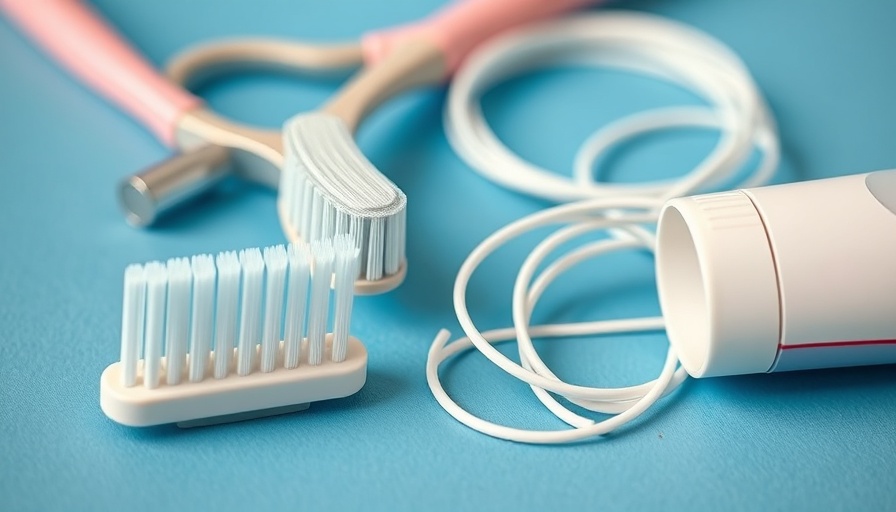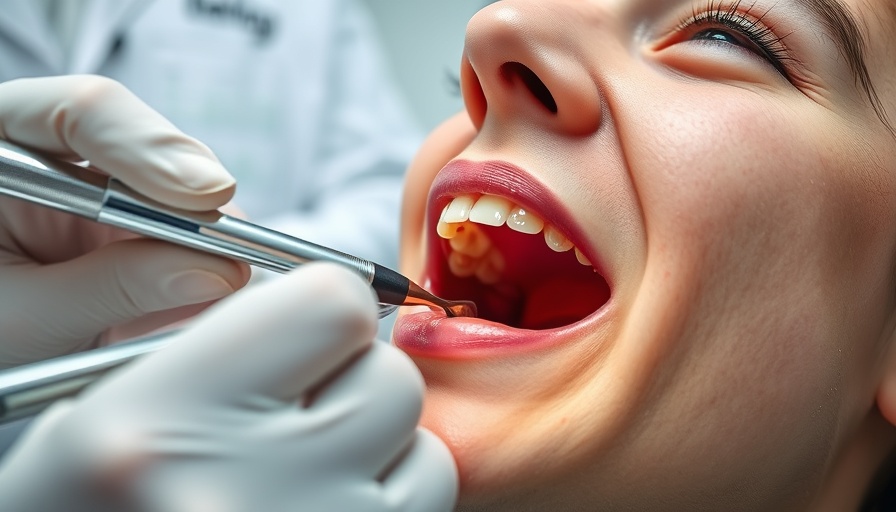
Understanding the Nuances of Bad Breath: Beyond Diet
Bad breath, or halitosis, is a common concern that many people face, particularly as they age. While certain foods like garlic or coffee can cause temporary issues, persistent bad breath can be a sign of underlying health problems that deserve attention. This article aims to shed light on the dental connections of bad breath, and how proactive oral hygiene can significantly improve your quality of life.
Why Gums are the Culprit Behind Persistent Bad Breath
The mouth is home to billions of bacteria; while many are benign, certain strains promote gum disease, which is a primary cause of chronic bad breath. A lack of effective gum care can lead to conditions such as gingivitis or periodontitis. Research suggests that almost 80% of adults experience some form of gum disease during their lives. Unfortunately, people often overlook their gum health, simply focusing on their teeth during dental care routines. Ignoring gums can result in bacteria proliferation that emits foul-smelling gases.
The Role of Lifestyle Choices: Smoking and Alcohol Use
Quitting smoking is not just beneficial for overall health, but it also plays a significant role in maintaining fresh breath. This is because smoking and tobacco products contribute to a dry mouth. Moreover, the chemicals in tobacco can irritate gum tissues, leading to additional complications. Similarly, excessive alcohol consumption can lead to dehydration, further aggravating bad breath. Therefore, being mindful of these habits can help mitigate unpleasant odors.
Essential Steps for Oral Hygiene: The Critical Role of Flossing
Effective oral hygiene extends beyond mere tooth brushing. Dental floss is an indispensable tool in every oral care regimen, yet only 20% of people regularly use it, according to dental surveys. Proper flossing eliminates food particles and plaque from spaces that toothbrush bristles cannot reach. Regular flossing can substantially reduce the risk of gum disease and, consequently, bad breath. Dental professionals recommend seeking guidance on the proper technique to maximize flossing effectiveness.
The Importance of Professional Cleanings: A Hidden Investment in Health
Scheduling regular visits with a dental hygienist is crucial not just for teeth cleaning but also for comprehensive oral health monitoring. Professional cleanings can eliminate tartar and bacteria that brushing and flossing alone may miss. It’s advisable to schedule biannual visits to catch potential issues early on and maintain optimal gum health.
Addressing Common Misconceptions Regarding Bad Breath
A prevalent misconception about bad breath is that mouthwash can fully disguise the problem. While mouthwash can provide temporary relief, it does not address the root causes. Mouthwash can mask odors for a brief duration, but persistent bad breath needs a thorough examination and improvement in oral hygiene. Understanding this difference can empower individuals to take active steps toward healthier gums.
Future Insights: The Role of Technology in Dental Care
Advanced technologies are playing a transformative role in dental care, with innovations paving the way for better oral health outcomes. Smart toothbrushes that provide feedback on brushing habits and apps that remind users of oral hygiene routines can be game-changers. Keeping up with these advancements will not only enhance personal hygiene but could also reduce visits to the dentist by ensuring that problems are caught at the early stages.
Seeking Help: When to Consult Your Dentist
If persistent bad breath continues despite improved oral hygiene practices, it is crucial to consult a healthcare professional. They can conduct a thorough examination to determine whether an underlying condition, such as diabetes or gastrointestinal issues, is the cause. Consulting with your dentist can provide peace of mind and help rectify the situation effectively.
In conclusion, by understanding the links between bad breath, oral hygiene, and lifestyle choices, you can make informed decisions that improve not only your breath but your overall oral health. Don’t underestimate the impact of proper gum care and professional consultations; taking action now can profoundly benefit your health and social interactions.
 Add Row
Add Row  Add
Add 




Write A Comment